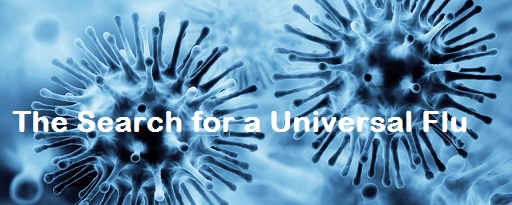
The Search for a Universal Flu Vaccine
No one wants to catch the flu, and the best line of defense is the seasonal influenza vaccine. But producing an effective annual flu shot relies on accurately predicting which flu strains are most likely to infect the population in any given season. It requires the coordination of multiple health centers around the globe as the virus travels from region to region. Once epidemiologists settle on target flu strains, vaccine production shifts into high gear; it takes approximately six months to generate the more than 150 million injectible doses necessary for the American population. Incorrect or incomplete epidemiological forecasting can have major consequences. In 2009, while manufacturers, including MedImmune and Sanofi Pasteur, were preparing vaccines against the anticipated strains, an additional influenza strain, H1N1, emerged. The prepared vaccine didn’t protect against this unanticipated strain, causing worldwide panic and over 18,000 confirmed deaths – likely only a fraction of the true number, estimated to exceed 150,000. Better late than never, a vaccine was eventually produced against H1N1, requiring a second flu shot that year. Given that influenza has caused the majority of pandemics over the past 100 years – including the 1918 flu that resulted in as many as 50 million deaths – we’re left with the question: Can scientists produce a “universal” vaccine capable of protecting against diverse strains of influenza, one that doesn’t require annual predictions by epidemiologists and a yearly shot for you?
Vaccines prime the immune system to fight
Read the full article by Ian Setliff and Amyn Murji, Vanderbilt University, The Conversation on http://www.dddmag.com/news/2017/01/search-universal-flu-vaccine SOURCE: Drug, Discovery and Development – posted on January 2017


